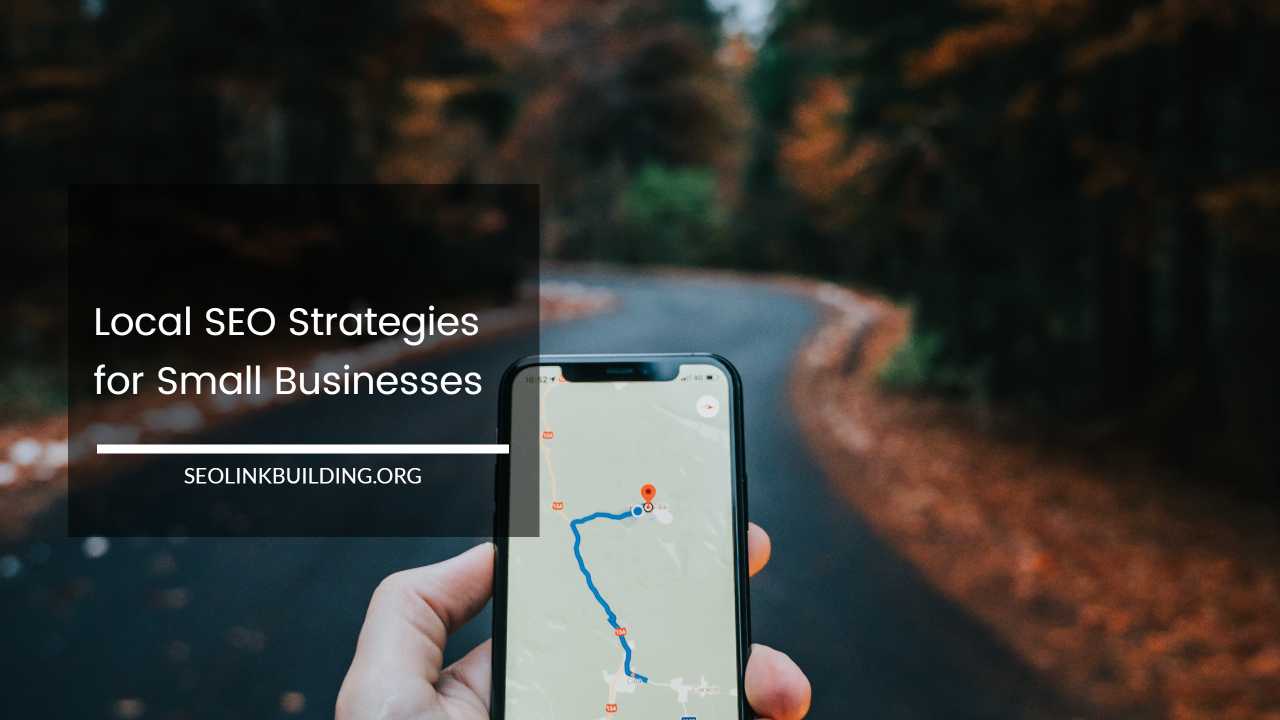Local SEO Strategies for Small Businesses

Local SEO
Local SEO Strategies for Small Businesses: A Comprehensive Guide
In today’s competitive digital landscape, small businesses face the challenge of standing out from the crowd, especially when trying to reach local customers.
Local SEO, or local search engine optimization, is a powerful tool that allows small businesses to improve their visibility in local search results, attract more customers, and increase foot traffic to physical stores.
Whether you’re a restaurant, a retail shop, or a service-based business, implementing effective local SEO strategies can significantly boost your online presence and drive more traffic to your door.
This comprehensive guide covers everything small business owners need to know about local SEO, from the basics to advanced techniques.
We’ll walk through essential strategies that can help you enhance your rankings in local search results and dominate your local market.
Understanding the Basics of Local SEO
Before diving into the strategies, it’s important to understand the fundamental principles of local SEO.
Local SEO focuses on optimizing your online presence to rank better in local search results, particularly for search queries that include a geographic location.
When someone searches for a product, service, or business near them, Google and other search engines aim to provide the most relevant results. To determine which businesses to display, they consider several key factors:
- Relevance: How well does your business match the search query? For example, if someone searches for “best pizza in San Francisco,” Google will show results that are highly relevant to pizza restaurants in that area.
- Prominence: How well-known and reputable is your business in your local area? Prominence factors include the number and quality of customer reviews, citations (mentions of your business on other websites), backlinks, and your overall online presence.
- Proximity: How close is your business to the person conducting the search? If you are in close proximity to the searcher’s location, your business has a better chance of being shown in the search results.
Understanding these factors will help you tailor your SEO efforts to improve your local rankings and attract more customers in your geographic area.
Claim and Optimize Your Google My Business Profile
One of the first steps in any local SEO strategy is claiming and optimizing your Google My Business (GMB) profile. GMB is a free tool offered by Google that allows businesses to manage their online presence across Google, including in search results and on Google Maps.
By properly setting up and optimizing your GMB profile, you can drastically improve your local SEO performance.
Create a Google My Business Profile
If you haven’t already, create a Google My Business profile. It’s completely free, and it helps your business appear in Google Search results and Google Maps, where most local searches take place.
When you create your GMB profile, make sure to include accurate and up-to-date information about your business, such as your:
- Name: Ensure that your business name is consistent across all online platforms.
- Address: Your physical location should be correct and formatted according to Google’s guidelines.
- Phone Number: Include a local phone number rather than a toll-free one, if possible.
- Website URL: Link to your website to drive traffic directly to your site.
- Business Hours: Make sure your hours are accurate and reflect any changes for holidays or special events.
- Category: Choose the most relevant category for your business (e.g., restaurant, plumber, etc.).
Complete Your Profile
Once you’ve created your profile, complete all fields to ensure Google has a comprehensive understanding of your business. Add information like:
- Attributes: Features like “wheelchair accessible,” “outdoor seating,” or “family-friendly” can help attract customers looking for specific services.
- Business Description: Write a brief, compelling description of your business, highlighting what makes you unique. Use keywords relevant to your products or services and your location.
- Photos and Videos: High-quality photos of your business can increase engagement. Include images of your products, services, staff, and storefront. Google has found that businesses with photos receive 42% more requests for directions and 35% more click-throughs to their websites.
Verify Your Business
After setting up your GMB profile, it’s crucial to verify your business. This step lets Google know that your business exists at the specified location and ensures that your information appears in local search results.
Verification can be completed via phone, email, or a physical postcard sent to your business address.
Encourage Customer Reviews
Customer reviews are a critical ranking factor in local SEO. Google values the opinions of customers, and businesses with higher ratings and more reviews are often ranked higher in search results.
Encourage satisfied customers to leave positive reviews on your GMB profile. Here’s how you can make the process easier:
- Send follow-up emails: After a service or purchase, send customers a link to your GMB review page.
- Provide review cards: Place cards or signage in your store to remind customers to leave reviews.
- Respond to reviews: Engaging with your customers by responding to their reviews shows that you value their feedback and builds trust with potential customers.
Post Regularly on GMB
Regularly posting updates, promotions, photos, and events on your GMB profile helps keep your business active in the eyes of Google.
Posts can inform potential customers about upcoming events, special offers, or new products. Google also rewards active businesses with better visibility, so aim to post at least once a week.
Optimize Your Website for Local SEO
Your website is the foundation of your local SEO strategy. By optimizing it with local keywords, ensuring mobile-friendliness, and improving the user experience, you can increase your chances of ranking in local search results.
Target Local Keywords
Identifying and using the right local keywords is critical for improving your rankings. These are keywords that combine your products or services with location-based terms, such as:
- “Best plumbers in Dallas”
- “Affordable coffee shops in Austin”
- “Hair salons near downtown Denver”
Use tools like Google Keyword Planner, Ahrefs, or SEMrush to find local keywords that have high search volume and low competition. Once identified, incorporate these keywords into strategic areas on your website, including:
- Page titles
- Meta descriptions
- Headers
- Body content
- URL structure
Optimize Title Tags and Meta Descriptions
Title tags and meta descriptions are essential for improving both SEO and click-through rates. These elements show up in search results and give potential customers an idea of what your business is about.
Make sure your title tags and meta descriptions:
- Include relevant local keywords
- Accurately describe your business or services
- Are enticing to click (i.e., use compelling language to encourage people to visit your site)
For example:
- Title: “Best Italian Restaurant in Chicago | La Trattoria”
- Meta Description: “Looking for authentic Italian cuisine in Chicago? Visit La Trattoria for delicious pasta, pizza, and more. Open seven days a week!”
Create Location-Specific Landing Pages
If your business operates in multiple locations, it’s important to create individual landing pages for each location. These pages should include specific local keywords and unique information about that location, such as:
- Address and contact information
- Location-specific products or services
- Testimonials from local customers
- Local events or promotions
By creating location-specific pages, you help Google understand the geographic reach of your business and improve your chances of ranking in different areas.
Ensure Mobile Optimization
With an increasing number of local searches being conducted on mobile devices, ensuring your website is mobile-friendly is essential for local SEO success.
A responsive design ensures that your site adjusts to any screen size, providing a smooth browsing experience. Google also prioritizes mobile-friendly websites in search results, so it’s crucial to:
- Ensure your website loads quickly
- Use readable fonts and clear calls to action
- Optimize images for faster loading times
Build Local Backlinks
Backlinks, or links from other websites to your own, are one of the most important ranking factors in SEO. To boost your local SEO, focus on obtaining backlinks from reputable websites within your local community. This can include:
- Local news websites
- Local business directories
- Sponsoring local events or charities
- Partnering with other local businesses
Backlinks from trusted local sources can significantly increase your website’s authority, which can improve your local rankings.
Build Local Citations
Citations are mentions of your business on other websites, even if they don’t include a link back to your site. These citations help to verify your business’s legitimacy and improve local SEO.
Ensure NAP Consistency
NAP stands for Name, Address, and Phone Number. Consistency is key in local SEO. Your NAP information should be the same across all online directories and listings.
Any discrepancies in your business details can hurt your rankings and confuse potential customers.
Submit to Local Directories
Getting listed on local directories is an excellent way to build citations and improve local visibility. Popular local directories include:
- Yelp
- Yellow Pages
- BBB (Better Business Bureau)
- Local Chamber of Commerce websites
Make sure your business is listed in the most relevant directories for your industry and geographic area.
Monitor Your Citations
Regularly monitor your citations for accuracy. You can use tools like Moz Local or BrightLocal to check the consistency of your business information across various online platforms.
Keeping track of these listings helps maintain your local SEO performance and ensures your business is always found by potential customers.
Leverage Social Media for Local SEO
Social media is an important tool for engaging with your local community and boosting your SEO efforts.
Create Local Social Media Profiles
Set up social media profiles on platforms like Facebook, Instagram, and Twitter and make sure they are optimized for local search.
Include your business’s location in your bio and profile descriptions, and encourage customers to tag your business in their posts.
Geo-Tag Your Posts
When posting images on social media platforms like Instagram, use geo-tagging to show where your business is located.
Geo-tagging helps Google associate your business with specific locations, which can improve your local search rankings.
For example, when posting a photo of your storefront or an event, include your city or neighborhood as a tag.
Engage with the Local Community
Use your social media platforms to share local events, participate in community initiatives, and connect with local customers.
Building an active and engaged social media presence in your community can boost your local SEO and make your business more visible to potential customers.
Engage with Your Local Community
Building strong relationships within your local community can have a significant impact on your local SEO success. Here are some ways to engage:
Participate in Local Events
Sponsor, host, or attend local events to increase your business’s visibility. Whether it’s a charity event, a local festival, or a community gathering, being involved in your area can help build brand awareness and foster goodwill.
Partner with Local Businesses
Collaborate with other local businesses for cross-promotion opportunities. For example, you could run a joint promotion, share each other’s content on social media, or co-host an event. These partnerships help you reach a broader local audience.
Offer Local Deals and Promotions
Offering special discounts, promotions, or loyalty programs for local customers can increase foot traffic to your store and encourage repeat business.
Local promotions also help improve your visibility within your community and build long-term relationships with customers.
Measuring Your Local SEO Success
To track the effectiveness of your local SEO efforts, consider the following key performance indicators (KPIs):
- Local Search Rankings: Use tools like Google Search Console to monitor your rankings for local keywords.
- Website Traffic: Use Google Analytics to track the number of visitors coming from local searches.
- Customer Reviews: Monitor the quantity and quality of reviews on Google and other platforms.
- Citations: Keep track of your citations and ensure they are consistent.
- Foot Traffic: Use in-store analytics or ask customers how they found your business.
Final Thoughts
By implementing these local SEO strategies and staying consistent with your efforts, you can significantly improve your business’s online visibility and attract more customers from your local area.
Local SEO is an ongoing process, so it’s important to keep optimizing your profile, website, and online presence to stay ahead of the competition.
By staying engaged with your community and focusing on the local search factors that matter most, you can ensure your small business thrives in the digital age.













